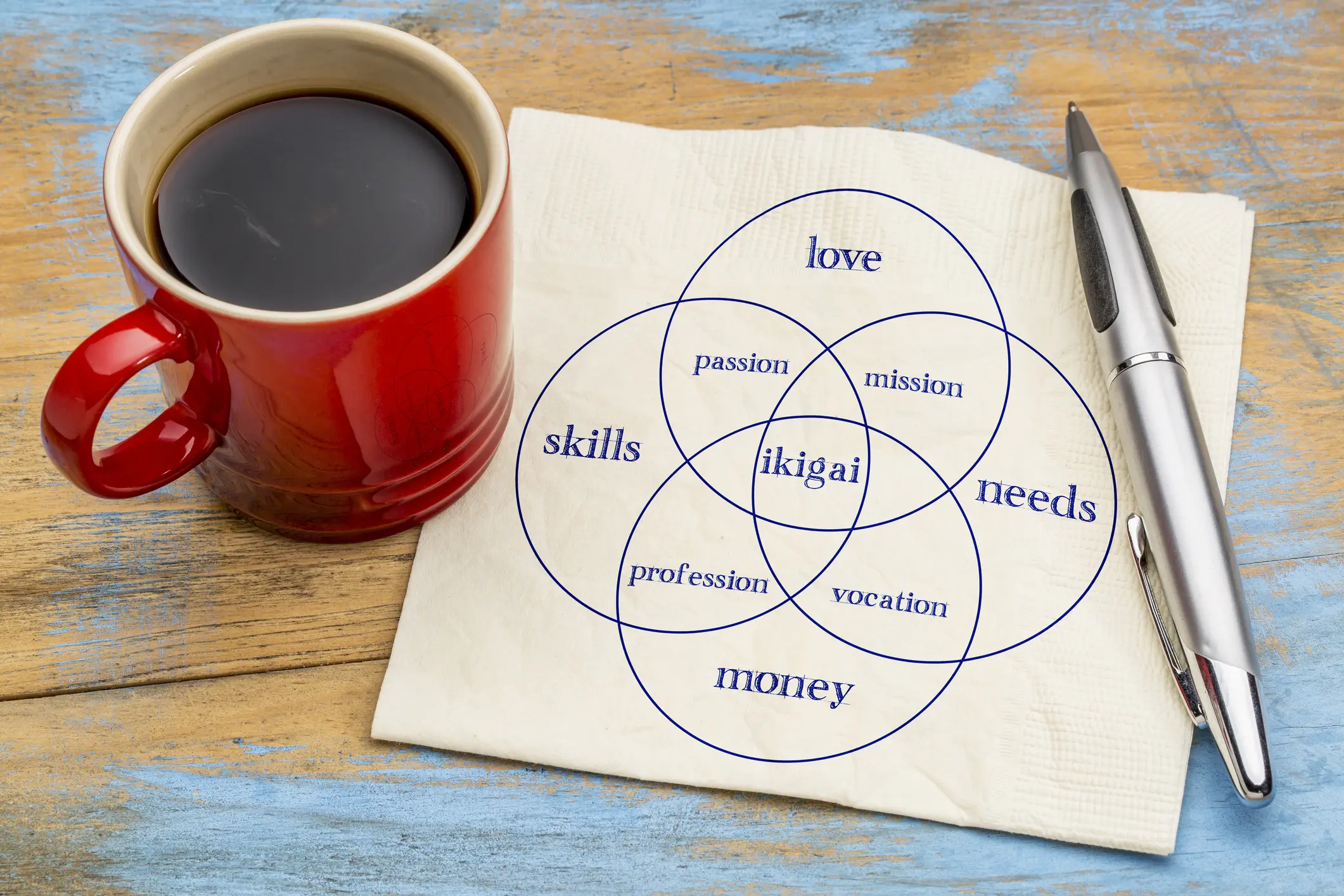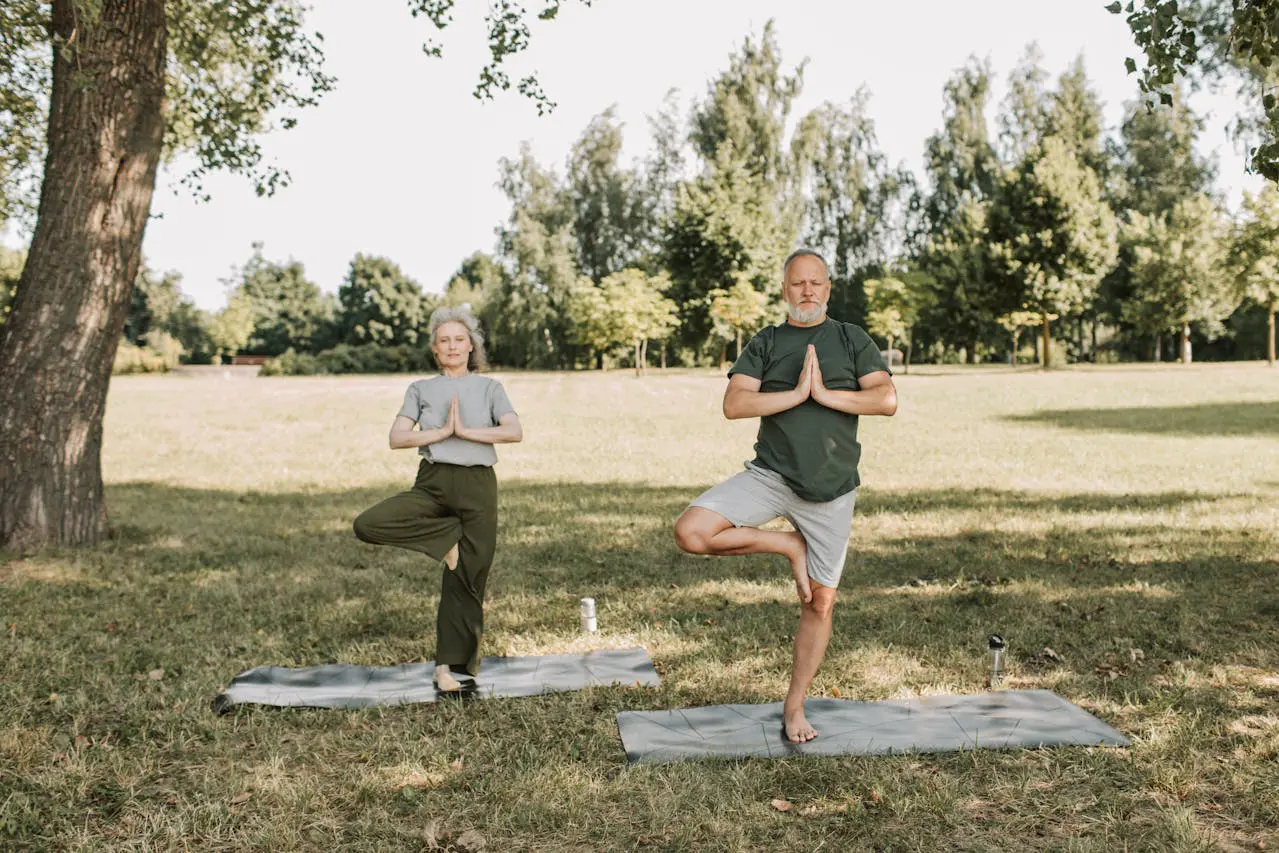You set your alarm, commute, response emails, being in conferences, grab a late lunch, scroll a little too long, and collapse into bed. Rinse, repeat. The routine “works,” however it doesn’t feel like it’s working for you. If that sounds familiar, you’re not alone– and you’re not stuck.
A growing body of research suggests that developing a stronger sense of function in life isn’t simply great to have– it’s a quantifiable health practice linked with living longer, remaining sharper, and feeling much better.

Listed below you’ll find the health benefits of function, the strongest research studies behind the claims(with links ), and useful, evidence-informed ways to cultivate function– without stopping your task or moving to an abbey.
When scientists discuss “function in life”, they do not mean a stiff life strategy or some grand objective everybody must discover. In health and psychology research study, function is typically defined as:
- A central life goal– something bigger than yourself that provides instructions.
- A sense that your daily activities matter– that what you do makes a distinction, even in small ways.
- An organizing principle– a lens through which you choose, set goals, and invest effort.
Consider it less as a destination and more as a compass: it points you toward actions that feel lined up and meaningful, even when life gets stressful or unsure.
Purpose vs. Joy
It’s important to note that purpose isn’t the same thing as happiness or brief enjoyment. Happiness is often about how we feel in the minute, while function has to do with why we keep going.
Researchers explain it as a more “eudaimonic” type of well-being– rooted in significance, growth, and contribution– rather than fleeting delight.
Everyday Examples of Purpose

Purpose can look extremely different depending on the individual and stage of life. It does not have
- to be remarkable or world-changing: For a moms and dad: Raising children in a loving environment, teaching values, and helping them flourish.
- For an expert: Using skills to mentor more youthful coworkers, develop an item that resolves problems, or serve clients with stability.
- For a student: Working toward a degree that will enable them to contribute to society in a chosen field.
- For a retiree: Volunteering at a recreation center, gardening for joy and sustainability, or protecting household customs.
- For an artist: Revealing emotions through painting or music, and producing works that influence or comfort others.
1)Durability and Lower Death Threat In an accomplice of 6,985 U.S. adults over age 50 (Health and Retirement Research Study), those with a more powerful sense of life function had a substantially lower threat of all-cause death, even after changing for economic status,
health, and other elements. JAMA Network Why it matters: This is not a small benefit sample; it’s a nationally representative longitudinal dataset typically utilized in aging research study.
2) Much Better Preventive Health Behaviors
An extensively pointed out study in PNAS discovered that individuals with greater purpose were most likely to get preventive screenings (e.g., cholesterol tests, colonoscopies) and spent fewer nights hospitalized. Purpose appears to nudge practical, health-protective choices.
3) Brain Health: Lower Threat for Cognitive Disability and Dementia
New, massive proof reveals function forecasts lower risk and later on start of cognitive impairment (including MCI and dementia) over as much as 15 years of follow-up, even when genes (APOE-ε4), depression, and education are considered.
This complements earlier work from the Rush Memory and Aging Task, which linked greater function to decreased threat of Alzheimer’s disease (ADVERTISEMENT) and moderate cognitive problems (MCI). PMC
4) Mental Health: Lower Depression and Stress And Anxiety
A meta-analysis of 99 samples (N = 66,468) reported that greater function was moderately related to lower depression (r ≈ −.49) and lower anxiety (r ≈ −.36). While correlation isn’t causation, the consistency throughout samples is significant. Wiley
5) Cardiometabolic and Day-to-day Working Signals

ID 74388454 © Marek Uliasz|Dreamstime.com Japan-based friends highlight ikigai (an associated construct) as protective. The Ohsaki Research study discovered that people without a sense of ikigai had greater all-cause mortality, mainly from cardiovascular and external causes (not cancer).
A 2022 accomplice connected greater ikigai with lower cardiovascular death among out of work grownups, recommending advantages across socioeconomic contexts. BMJ Open
6) Possible Pathways: Habits, Stress, Biology
Reviews suggest purpose might safeguard health by means of:
- Behavioral pathways (more movement, much better sleep, adherence, preventive care). (PNAS pointed out above)
- Stress-buffering and psychological strength (lower persistent stress load).
- Biological paths (knock-on effects on swelling, cardiovascular function).
An additional angle: health literacy is positively associated with function and life complete satisfaction, hinting that finding out to browse health choices can boost purpose and, in turn, health. Nature
You do not need a grand mission. Function frequently grows from small, repeated, values-aligned actions. Below are strategies supported by research and clinical practice frameworks.
1) Start with Worths, Not “Passions”
Why: Passions can feel elusive; worths are offered now. Many effective treatments (e.g., Acceptance and Dedication Therapy) construct wellness by lining up day-to-day actions with personally selected worths (family, discovering, service, creativity).
How: Compose 3– 5 core worths. For each, list one 15-minute action you can take today (call a relative; tutor a student online; practice an instrument). Consistent behavior builds the feeling of purpose.
2) Utilize the “Three Lanes” Design: Self, Others, Development
Function tends to emerge at the intersection of:
- Self-care/health (sleep, motion, nutrition)
- Contribution (helping an individual, team, or cause)
- Growth (mastering a skill, knowing)
Select one micro-action per lane daily. Over time, these ended up being identity-confirming habits. The preventive-care link recommends that function and healthy routines enhance each other. PNAS, cited above
3) Build Micro-Commitments (and Keep Them)
Research on function and preventive behaviors suggests that follow-through matters. Pick small, scheduled commitments (e.g., 10-minute walk + 2 push alerts shut off + 1 meaningful text sent). Track them briefly in a notes app. The point is consistency, not excellence.
4) Practice “Pro-Social Reps”

Assisting others– at work or outside– forecasts stronger function and much better mental health. Volunteer, mentor, or add a helping task to your workday(share understanding; improve a procedure; praise somebody’s effort).
This aligns with proof that purpose associates with reduce depression/anxiety and with the ikigai literature, which emphasizes contribution. PubMed
5) Strengthen Health Literacy (It Can Lift Purpose)
A 2022 study linked health literacy with greater purpose in life and life complete satisfaction, indicating that getting better at navigating health decisions may feed your sense of agency and purpose.
Try: find out how your screenings work, check out patient-friendly guides, and prepare concerns before consultations. Nature
6) Calibrate Work for Significance (Without Stopping)
Task crafting– tweaking tasks, relationships, and narratives– can increase function.
- Tasks: trade or redesign 1– 2 jobs to utilize your strengths.
- Relationships: add 10 minutes of mentoring or peer support weekly.
- Narrative: connect your role to results that matter (customer success, neighborhood wellness).
Even small changes can decrease “aimless regimen” and strengthen your why.
7) Rituals That Anchor Function Daily
Borrow from ikigai: begin the day by naming someone you’ll help and one ability you’ll practice.
End the day with a 2-minute reflection: What moved me? What did I move? Over weeks, these rituals shift attention toward significance.
8) When You Required a Boost: Therapeutic/Program Options
- Meaning-centered interventions (originally established in oncology) and other structured programs have actually revealed advantages for well-being and significance in randomized research studies. apjon.org
- Digital, short-term meaning/purpose interventions have improved viewed suggesting and life satisfaction versus waitlist in trials. (Evidence base emerging.) apjon.org
Truth check: The gold standard (long, multi-arm RCTs with tough health endpoints) is still restricted. But observational and mechanistic proof is strong and growing, and newer trials are appealing.

Day 1– Values & Vision(20 min). List top 5 worths. Write a 2-sentence “why I’m here” statement.Day 2– Health Anchor (15 min). Arrange one preventive/health action( screening, walk, sleep window). Day 3– Pro-Social Act (10 minutes).
Help a single person in a concrete way.Day 4– Skill Representative( 15 minutes). Practice one skill tied
to growth at work or home.Day 5– Micro Job-Craft (15 minutes). Improve or switch one job to better utilize your strengths.Day 6– Discover for Agency (15 minutes). Check out a patient-friendly explainer on a health subject affecting you; note one concern to ask a clinician.Day 7– Reflection & Plan(15 minutes). Journal: What felt most meaningful? What will I repeat next week? Repeat weekly; keep actions little and sustainable. FAQs Readers Often Ask Isn’t function a luxury?Not according to data. Advantages appear
throughout age groups and socioeconomic contexts, including jobless grownups in Japan(ikigai-CVD link). BMJ
Open from above Can function delay brain aging if I have a hereditary risk?A 2025 U.S. associate recommends yes: greater purpose was related to lower risk and later on beginning of cognitive impairment even after adjusting for APOE-ε4. PubMed What
if I’m scorched out?Start with micro-actions in your control(sleep, sunshine walk, one useful act). Small wins re-establish company, which supports purpose and mental health in time.(See meta-analysis on depression/anxiety links. )PubMed Limitations & What the Science Can’t Say(Yet)Lots of studies are observational; they show association, not guaranteed causation. Scientists do adjust for standard health and socioeconomic factors, however unmeasured variables may contribute. JAMA Network from above Intervention trials that raise function and straight track difficult health outcomes (e.g., mortality )are still fairly unusual; nevertheless, emerging RCTs in meaning-centered treatment and digital programs are motivating. apjon.org mentioned above Measurement tools differ (e.g., Ryff Scales; ikigai surveys
), which can make comparisons challenging across studies. PubMed mentioned above Disclaimers & Caution This article is educational, not medical suggestions. If you’re experiencing depression, anxiety, burnout, or cognitive issues, consult a qualified clinician. A stronger sense of function is not a cure-all. It’s one piece of a wider health image that includes sleep, movement, nutrition, medical care, neighborhood, and safety
. If”function work”brings up traumatic thoughts, seek assistance from a licensed psychological health expert. Evidence-based treatments can help you clarify values and develop purpose securely and sustainably
. Last word You don’t require a brand-new life to feel more alive. Start with one little, values-aligned action today, and repeat it tomorrow. Over time, those actions end up being a story– which story can reinforce both your health and your why. Picture sources(Other than Dreamstime): 1, 2, 3, 4, 5 More incredible posts for you:

